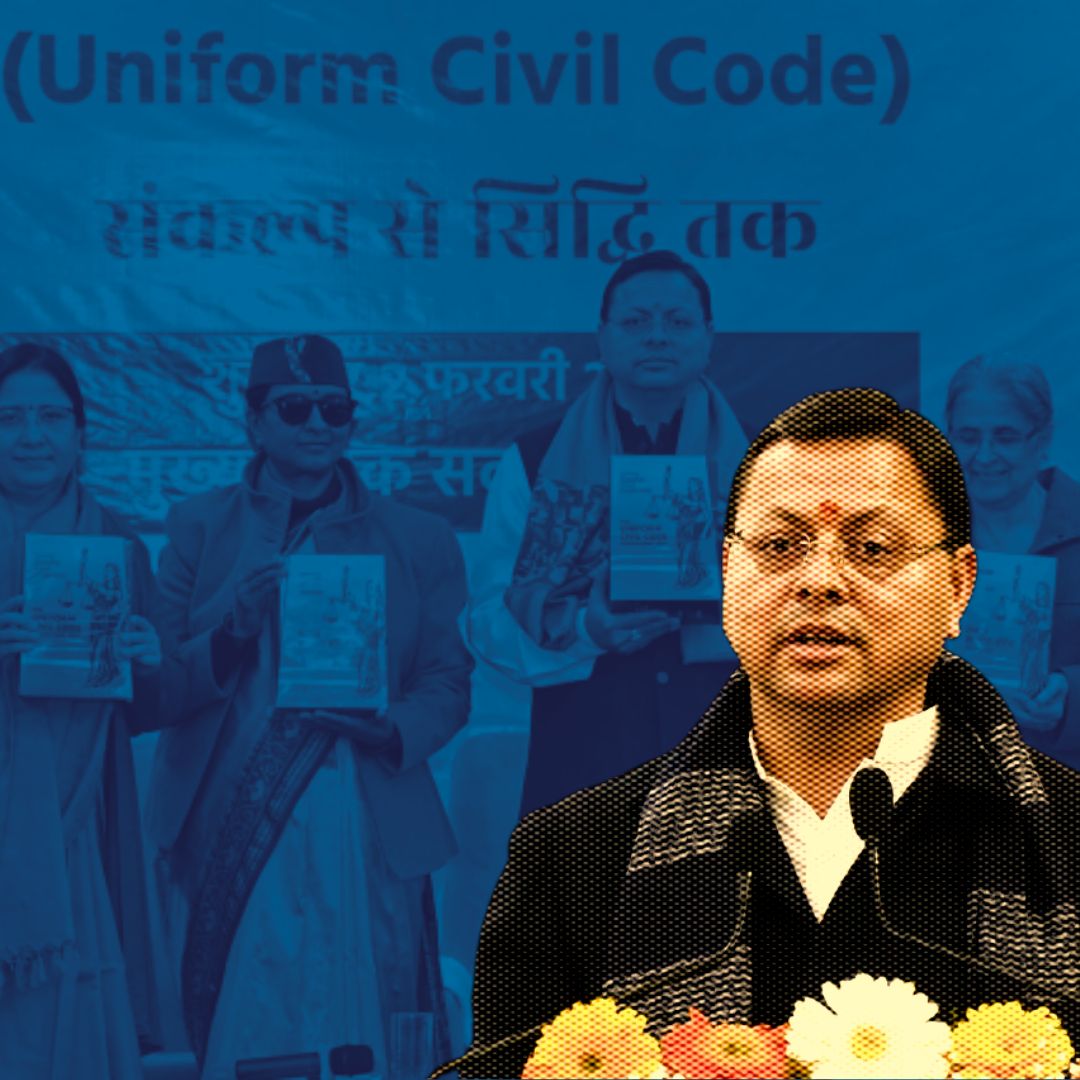Uttarakhand’s adoption of the Uniform Civil Code (UCC) represents a significant milestone in India’s journey toward equality and justice. As the first Indian state to implement this comprehensive legal framework, Uttarakhand sets a precedent that could inspire other regions to follow suit. The UCC aims to standardize personal laws across different religions, ensuring that all citizens, regardless of their faith, enjoy equal rights in matters such as marriage, divorce, inheritance, and adoption.
The Vision Behind the UCC
On January 27, 2025, Chief Minister Pushkar Singh Dhami launched the UCC in Dehradun, emphasizing its role in promoting societal norms that align with the principles of equality and justice enshrined in the Indian Constitution. Dhami stated, “With the implementation of the UCC in Uttarakhand, we honor the legacy of our Constitution’s architects.” This initiative reflects a commitment to inclusivity and social harmony, addressing long-standing disparities faced by marginalized communities.
Empowering Women: A Catalyst for Change
A pivotal aspect of the UCC is its focus on empowering women across all religions. By guaranteeing equal rights in marriage, divorce, inheritance, and adoption, the UCC seeks to dismantle systemic inequalities that have historically oppressed women. Key provisions include:
- Protection for Deserted Partners: Provisions for maintenance claims by partners deserted in live-in relationships ensure financial security, particularly for women who may be left vulnerable without support.
- Gender Equality in Inheritance: The UCC explicitly states that both sons and daughters will have equal rights to inherit property, eliminating gender-based discrimination in inheritance laws. This change is crucial for empowering women economically and socially.
- Mandatory Registration of Relationships: The requirement for mandatory registration of marriages and live-in relationships ensures legal recognition and protection of rights for all individuals involved. This measure not only promotes equality but also safeguards against exploitation.
- Legal Age for Marriage: By setting a uniform legal marriage age at 21 for both genders, the UCC aims to prevent child marriages and ensure that individuals are mature enough to make informed decisions about their relationships.
- Prohibition of Discriminatory Practices: The UCC bans practices such as polygamy and child marriage, which have historically marginalized certain groups. This prohibition reinforces the commitment to gender equality and the protection of vulnerable populations.
- Recognition of Live-in Relationships: The UCC recognizes children born out of live-in relationships as legitimate, granting them equal rights to inheritance. This acknowledgment is a progressive step towards inclusivity, ensuring that all family structures are treated fairly under the law.
- Uniform Divorce Laws: The introduction of uniform grounds for divorce applicable to all communities promotes fairness and equality in marital dissolution, ensuring that no group is subjected to more stringent or discriminatory practices than others.
A Unified Approach to Social Norms
The UCC proposes a single set of laws applicable to all religious communities in India. This unification can lead to more cohesive societal norms and reduce conflicts arising from differing personal laws. By fostering cooperation among diverse groups, the UCC encourages collaborative efforts toward addressing pressing social issues, including environmental challenges. A unified approach can facilitate dialogue between various stakeholders—government bodies, NGOs, and local communities—creating synergies that enhance environmental conservation efforts.
Supporting Sustainable Development Goals
The implementation of the UCC aligns with broader national efforts to transform India into a developed, organized, and self-reliant nation. As CM Dhami noted during his address, this initiative is part of a larger vision that includes sustainable development goals (SDGs). By promoting equality and justice through legal reforms like the UCC, Uttarakhand is contributing to a framework that supports not only social but also environmental sustainability.
Challenges Ahead
While the adoption of the UCC represents significant progress toward equality and justice in Uttarakhand, potential challenges must be acknowledged. Debates surrounding the UCC have raised concerns about its implications for tribal communities and specific religious practices. It will be crucial for policymakers to address these concerns sensitively and inclusively. Additionally, effective implementation will require robust mechanisms for education and awareness among citizens about their new rights under the UCC.
The Logical Indian’s Perspective
From The Logical Indian’s standpoint, the implementation of the Uniform Civil Code is a vital step towards fostering peace, dialogue, kindness, empathy, harmony, and coexistence among India’s diverse communities. We believe that a unified legal framework not only promotes social justice but also strengthens the fabric of our society by ensuring that every individual is treated with dignity and respect. The UCC embodies our commitment to positive social change by dismantling discriminatory practices that have persisted for too long.
As we celebrate this historic achievement in Uttarakhand, we encourage our readers to reflect on how such reforms can lead to a more inclusive society where everyone has an equal opportunity to thrive. What are your thoughts on the Uniform Civil Code? How do you think it will impact society moving forward? Share your reactions and insights with us!
"उत्तराखण्ड में आज से लागू हुई समान नागरिक संहिता (UCC)" : मुख्यमंत्री श्री पुष्कर सिंह धामी #UCCInUttarakhand pic.twitter.com/2khfH1LjT2
— CM Office Uttarakhand (@ukcmo) January 27, 2025











